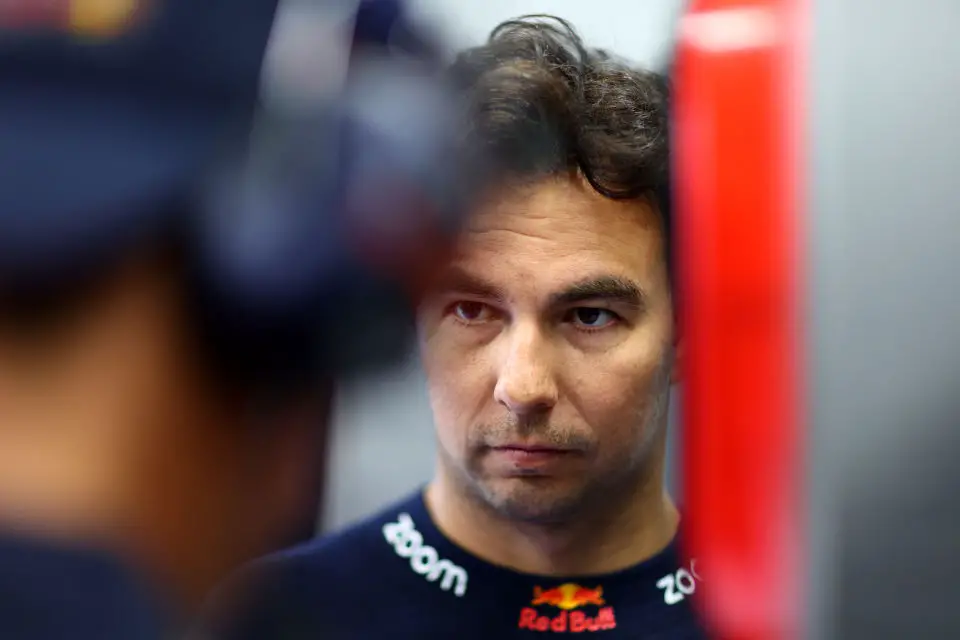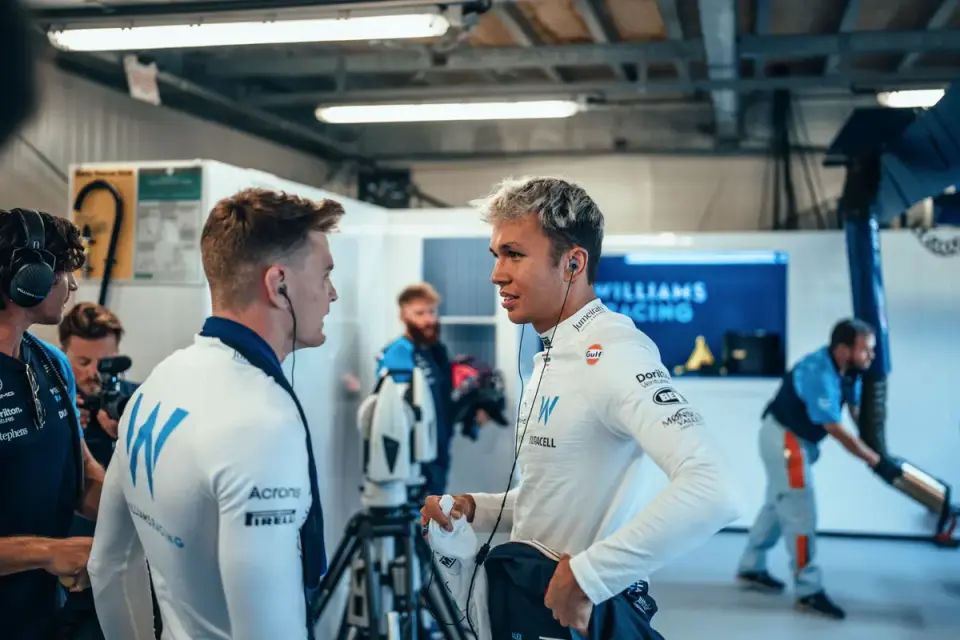Alex Albon Advocates for Tougher F1 Penalties Following Controversial Japanese GP Incidents
In the aftermath of contentious events at the Japanese Grand Prix, Williams driver Alex Albon has called for stricter penalties in Formula 1. His remarks highlight the ineffectiveness of current five-second penalties in teaching drivers against risky maneuvers.
Key Takeaways:
- Albon criticizes the current five-second penalty for causing collisions, arguing that it fails to deter drivers from repeating dangerous actions, as evidenced by Sergio Perez’s repeated offenses.
- Perez’s incidents in both the Singapore and Japanese Grand Prix, including clashes with Lewis Hamilton and Kevin Magnussen, have raised questions about the effectiveness of the existing penalty system in F1.
- Other F1 figures, like Kevin Magnussen and George Russell, also voiced their concerns, pointing out the inadequacy of the penalties in proportion to the gravity of the incidents.


Alex Albon, the Williams Formula 1 driver, has sparked a conversation in the racing community about the necessity of harsher penalties following recent on-track incidents. His statement underscores a growing concern in the sport regarding the efficacy of current disciplinary measures.
Albon’s comments were motivated by a sequence of events involving Red Bull driver Sergio Perez. Perez was involved in two separate collisions during the Japanese Grand Prix, first with Lewis Hamilton and then with Haas driver Kevin Magnussen. Despite the severity of these incidents, Perez received only a five-second penalty for each collision. This punishment seemed inconsequential, as it did not significantly affect Perez’s positions in the races.
Albon, witnessing these incidents firsthand, expressed his dissatisfaction with the current penalty system. He told Motorsport.com: “In Turn 11 he did the same move again to me on track today. I avoided it. And then he did it again to Kevin. I was behind him, so I had the best view of everyone. And so clearly it’s not really teaching the drivers anything, because the penalties aren’t strict enough. I mean, that’s two races in a row.”
The ineffectiveness of the penalties was further exemplified in Singapore, where Perez’s penalty did not impact his eighth-place finish. Similarly, in Japan, despite a double contact resulting in a DNF, Red Bull managed to bypass a carryover penalty to Qatar by re-entering Perez to serve the five-second penalty on track.
Magnussen, the victim of Perez’s maneuver in Japan, shared his frustrations, saying: “I just got spun around there by Perez, and it ruined our race. We had to pit, and that was too early for the two-stop strategy that we had, and the tyre degradation that we had. It was just too early to pit then. But we had to. I think he’s penalising himself, there’s a natural penalty for him doing that. It doesn’t look good for him, but it is what it is. We’re racing. He was in a shitty position, and he made a shitty move.”
George Russell, the Director of the Grand Prix Drivers’ Association, echoed these sentiments. Reflecting on a personal incident in Austin last year, he acknowledged the need for a review of the penalty system. He stated: “When I look at Austin last year when I made a mistake with Carlos [Sainz] and I got a five-second for it, that was really drive-through worthy. And it’s difficult, because we always say that we shouldn’t judge the consequence of the incident, but sometimes you need to judge the consequence of the incident. So I’ll need to review.”
The ongoing debate highlights a critical aspect of racing safety and sportsmanship in Formula 1. The consensus among drivers like Albon, Magnussen, and Russell suggests a shift towards reevaluating the penalty system to ensure fair play and safety in the sport.


